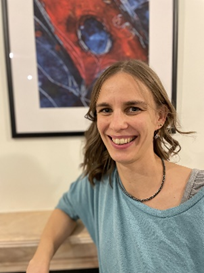Key Facts

Abstract:
In the Thurston group we study the molecular mechanisms that impact the fate of intracellular bacteria, encompassing the host innate immune responses that restrict pathogens and the bacterial virulence proteins that promote pathogenesis. From studying how the intracellular Gram-negative pathogen, Salmonella, polarises macrophages via the unprecedented mechanism of kinase reprogramming to how Burkholderia reverses RNF213-mediated LPS ubiquitylation, we are obsessed with understanding the often unusual and remarkable functions of diverse virulence proteins. Here, I will focus on our current understanding of kinase reprogramming, a process mediated by the Salmonella effector SteE, which forces the serine/threonine kinase GSK3 to now mediate the tyrosyl phosphorylation of neosubstrates.
Bio:
Teresa completed a PhD with Felix Randow at the MRC laboratory of Molecular Biology, identifying new mediators of antibacterial autophagy. After this she carried out a postdoc with David Holden at Imperial, obtaining an early career Leverhulme Fellowship and then an Imperial College Research Fellowship, working on the molecular mechanisms of Salmonella effectors. She started her independent lab as a BBSRC David Philips Fellow, working on bacterial effectors and was awarded an ERC grant to work on the concept of kinase reprogramming. Teresa is now an Associate Professor and EMBO Young Investigator at the Sir William Dunn School of Pathology in Oxford.

